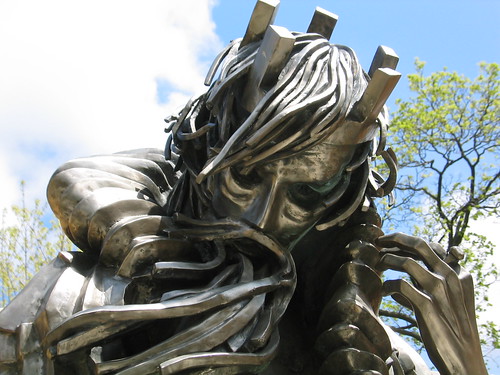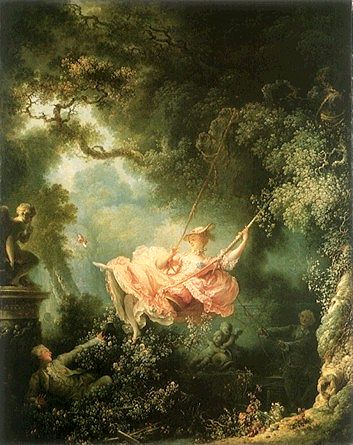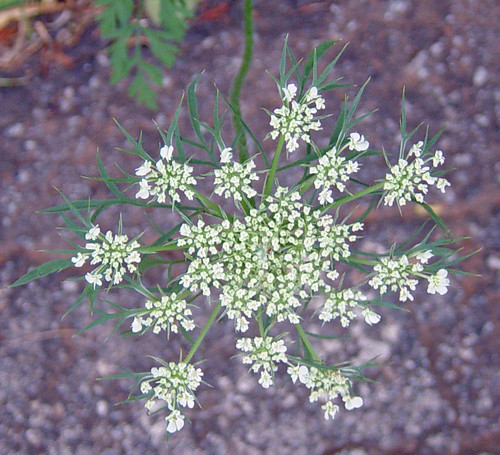Before writing...
^Take notes on a lecture about poetry in the 20th and 21st century.
^Choose a “group,” “movement,” or “school”. (No more than two students can share a “movement” or “school”.)
1. Write a reflection on the experience of reading the poems.
The edict of the modern and post-modern age in poetry comes from Ezra Pound: “Make it new!”
2. Write a careful, insightful explication of one of the poems. Post this on your blog. For explication help look here. Also, look at the directions above for ideas about what to explicate/explain/interpret/unfold. You're only doing one explication so it should show an imaginative, insightful grasp of the whole and of the particulars of the poem.
When explicating write about what the poem seems to say and how it says it. With modernist and post-modernist poetry the how (or form)--the speaker's voice, diction, syntax, tone, sound, line breaks, arrangement, etc.--is often as important or more important than the what (or content)--the speaker, the occasion, the subject, the plot or events, other people or characters in the poem.
Or to put it more succinctly, Samuel Beckett (Waiting for Godot) said that James Joyce (A Portrait of the Artist) isn't "writing about something. He is writing something."
3. Research the group / movement / school and write a reflection that demonstrates that you understand the group / movement / school, its relationship to the poems you’ve read, and to your own developing ideas about literature and language. {Notice the three parts to this: 1. show that you understand the group & what it was/is all about, it's significance, etc.; 2. show how the group's ideas, values, etc. has some relationship to the how (form) and what (content) of the poems you've read; 3. develop your own thoughts about the poems you've read and the group that created them, especially in terms of what you think literature should or could do, as well as what you get from & want from literature.}
4. Find a work of art other than a poem—painting, sculpture, musical composition, dance, film, etc.—that is somehow related to the group / movement / school. In some cases—surrealism, Dadaism, futurism for example—this will be easy because these movements occurred in the visual arts too. In other cases, you’ll have to be a bit more inventive. I can help with this. Ask me.
Write a response explicating the work of art and explaining how it relates to the poetry movement. (Notice there are two parts to this. 1. Provide a close reading of the work of art. For help explicating visual art check out step four here at my friend's blog (Mr. Gallagher of Malden High School). 2. Show a relationship between the poetry you have read (& the group / movement / school of poetry) and the art-other-than-poetry. I will also provide some examples in class.
5. Create a work of art—poem, painting, short film, script, etc.—that relates in someway to the poems, other art, or movement / group / school. Write a paragraph explaining the connection between your creation and the work you have done. The art & paragraph should be on your blog. (If the art is visual and you don't know how to scan it or take a digital photograph let me know; I'll help.)








1 comment:
Im no expert, but I believe you just made an excellent point. You certainly fully understand what youre speaking about, and I can truly get behind that. şişli ingilizce kursu
Post a Comment